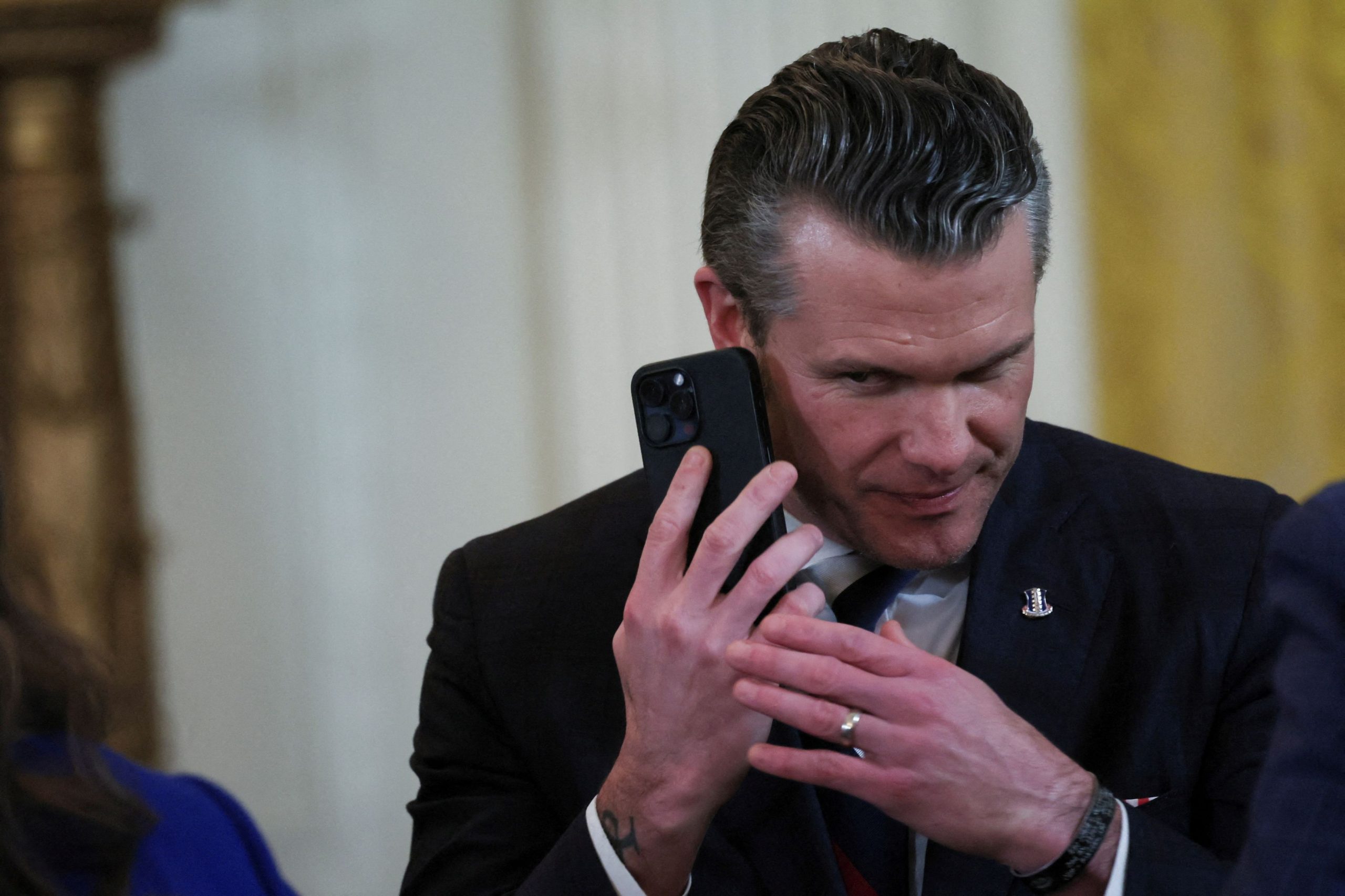On March 13, 2025, The Atlantic‘s Editor-in-Chief Jeffrey Goldberg found himself part of a high-level national security conversation concerning U.S. military operations against the Iran-backed Houthi rebels in Yemen. According to The Atlantic’s own report, Goldberg was inadvertently included in a group chat on the Signal messaging app, which was being used by senior U.S. officials to coordinate the operation. The conversation, which reportedly included figures such as Defense Secretary Pete Hegseth, Vice President JD Vance, Senator Marco Rubio, and others, revolved around the timing and potential risks of a military strike.
The Signal chat had started following an escalation by the Houthis, who had been targeting global trade routes and military vessels in the Red Sea since November 2023. According to Goldberg, he received the invitation to the chat from an account appearing to belong to National Security Adviser Michael Waltz, who was part of the group. The message chain included discussions on sensitive aspects of the military operation, such as targeting specifics, weaponry, and timing. There was also concern about the potential economic fallout, particularly regarding oil prices, European allies, and the broader geopolitical implications of the strikes.
Goldberg reported that his presence in the chat went unnoticed by all members. As the conversation continued, the group discussed concerns about the public understanding of the attack’s timing and its potential impact on global oil prices, with JD Vance suggesting a delay of the operation to allow more time for strategic messaging. However, the group ultimately decided to proceed with the operation as initially planned. Two hours after the discussion, explosions were reported in Yemen.
After the strikes began, members of the group, including accounts appearing to belong to Waltz and Hegseth, expressed praise for the operation.
The accidental inclusion of a journalist in such a sensitive conversation raised concerns about security breaches. Experts noted that Signal, although end-to-end encrypted, is not authorized for the sharing of classified information, and its use in this instance may have violated security protocols.
The National Security Council confirmed the authenticity of the messages in a statement, and later, President Donald Trump commented on the situation, initially claiming that he was unaware of the breach. However, Trump later downplayed the incident, calling it a minor glitch in his administration. White House press secretary Karoline Leavitt stated that no classified information was shared on the platform, and Trump emphasized his confidence in Waltz, calling him a “good man” who had “learned a lesson.”
Despite the White House’s reassurances, the breach quickly became a topic of controversy, with Democratic lawmakers calling for a full investigation. Senate Majority Leader Chuck Schumer described the situation as “one of the most stunning breaches of military intelligence” in recent memory, while Senate Armed Services Committee Chairman Jack Reed called the security lapse “dangerous” and demanded answers from the administration.
The issue also drew criticism from within the Republican party, with Senator Roger Wicker expressing concern about the security breach and pledging a bipartisan investigation into the matter. Though House Speaker Mike Johnson suggested that no adverse consequences should result from the breach since the operation itself was a success.
The incident also drew attention to the broader issue of how sensitive information is handled in the digital age. The Signal app, while more secure than conventional texting methods, is still not a classified platform. Security experts have warned that its use for discussing sensitive military operations may have compromised U.S. national security.
While some officials in the Biden administration had been given permission to use Signal for communication about sensitive matters, their use has been restricted to non-classified issues, such as scheduling or communicating about travel. The use of Signal by Trump administration officials for discussing military operations has raised questions about the security and privacy of digital communication tools, particularly in high-stakes national security contexts.
As the National Security Council investigates the breach, legal experts have pointed out that the handling of national defense information is strictly regulated under laws like the Espionage Act, which makes it a crime to mishandle classified materials.






